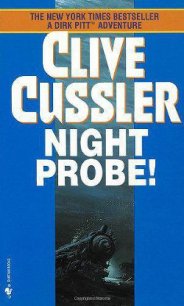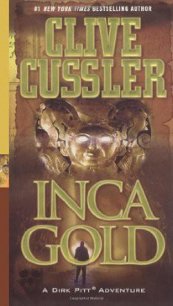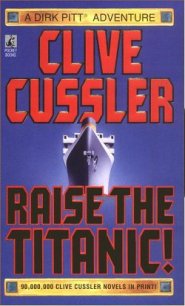The Tombs - Cussler Clive (читать книги бесплатно полностью txt) 📗
They heard Albrecht typing on a computer keyboard. “Give me a moment to get a better perspective on this computer map. There. No, I think you’re right. The old Chinese sources say that five hundred men worked two years to build the fort. They were in the middle of the Sino-Xiongnu War. Xiongnu was the Chinese name for the Huns. Zhizhi, leader of the Huns, was expecting a Han army of up to three hundred thousand men to arrive at some point, so the fort would have had to be strong. It would be built in the heights, and it would need a water supply. We know it was high-walled because when the Chinese did come, the only way they could storm it was by piling dirt up beside it until it was even with the wall. The fight was furious, and even Zhizhi’s wives shot arrows from the battlements. The Chinese overwhelmed them and won. I don’t think the fort was at the modern marketplace. The ruins under the market are more likely to be either a habitation or a cemetery.”
“What will Mundzuk’s grave consist of?” asked Remi. “What do we look for?”
“I’m sending you pictures of the known burials of the earliest Huns in Mongolia. They were buried under mounds. There’s a burial chamber made of stone, and then over it are layers of stone, soil, and logs of Siberian larch.”
“That’s close to the sort of thing we found in France. It had been made of logs plastered with mortar.”
“Look for any natural feature that could have been a mound. Most likely, it was leveled intentionally or by time, the wind, and the river. But Mundzuk would never have been in the fort, which was destroyed three hundred years earlier with Zhizhi’s defeat. It was a ruin long before Mundzuk’s time. Remember, we’re looking for a king who died just during the migration to Europe. If the market is over a burial complex, Mundzuk’s grave would be one of the last.”
Remi said, “Is there any way to know how his father’s death affected Attila?”
“We know quite a few facts,” said Albrecht. “Mundzuk was buried in 418. Attila was born in 406, so he was twelve when his father died and his uncle Ruga became King. I’ve sometimes thought that even in that generation there might have been dual kings—that Mundzuk and Ruga might have shared the throne the way Bleda and Attila did later. At the time of Mundzuk’s death, the Huns were making a big leap historically. The great migration, their conquest of much of Asia and Europe, was already well under way. We know that they were in contact with the Romans near the Danube around the year 370, so it’s almost certain Mundzuk’s body was brought back to the eastern homeland for burial only. Attila would have stayed for it and then returned west. In those days, young princes from all over the Roman Empire and beyond were kept in Rome for a few years at a time to encourage their families to keep their treaties with Rome, and Romans were sent as hostages to neighboring kingdoms. Once Attila’s father was dead, Attila became a convenient choice as a hostage. He was sent to Rome.”
“That must have been quite an experience for a twelve-year-old,” Remi said.
“Yes, I’m sure it was. Either before or during the trip, he learned Latin, which the Huns and others considered a soldier’s language, something likely to be useful to members of a ruling family. Later, Latin would help him communicate with allies and subjects from hundreds of tribes and with emissaries of the Empire. Attila met lots of aristocratic Romans, saw how the Romans governed, and certainly came away with lots of information about the Roman armies.” Albrecht paused. “But I’m going on, aren’t I? What we need to do is find the tomb of Mundzuk. Do you have any ideas yet on how you’ll proceed?”
“Cautiously,” said Sam. “We’re in a town where we don’t speak the language and just a few speak ours. We know there are anti-American groups operating here. We’ve just been to the supposed site, which is a central market in a big city, so there’s barely space to stand on, let alone to perform an excavation. The problem is that by the time we get it done, the treasure will be gone, split among Poliakoff and his friends, and the gold melted down and converted to cash. This is like salvage archaeology. Either we do it now or we’ll never get another chance. And this is the final treasure, the one Attila’s message said we had to find to get to his tomb.”
“I know,” said Albrecht. “But treasure is never something worth getting killed for.”
“Agreed,” said Sam. “We’ve already pushed our luck to the limit. But we may have a way to push the limit.”

TARAZ, KAZAKHSTAN
THAT EVENING, SAM WENT TO NURIN’S ROOM AND INVITED him to join him and Remi for dinner. He communicated this by a mixture of pantomime and gesture, finally walking to the elevator and beckoning Nurin to follow. When Sam had ushered him to the room, he and Remi presented him with a room service menu.
They asked him to use the telephone to order what each of them wanted for dinner. They had drawn pictures of farm animals and vegetables on a piece of paper. He got the idea, and performed the task. While they waited for their dinner, Remi picked up a magazine from the coffee table and showed him pictures of a fashionable Kazakh woman wearing flat shoes, a flowing dress, and a hijab that covered her hair. She pointed to what must be the address of a store in Taraz. She also showed him an ad for baby furnishings, clothing, and equipment and pointed to that address. Later in the evening, after they’d eaten, she took a notepad and showed him a set of pictures that Sam had drawn. Sam was an engineer, so the drawings were clear and neat, with numbers to show the dimensions.
Sam’s first pictures were of a machinist with a tapping-and-threading machine taking a series of tubes and tapping and threading them on both ends so they could be screwed together. He took out the metal tubes and showed them to Nurin. Next there was a diagram of a large wooden box with dimensions written on it and a man painting it black. Nurin studied the pictures and diagram. Then Remi pointed to both and handed him several thousand tenge. Nurin, who was already eager to do something to stave off the boredom of sitting in a hotel for a week waiting to drive them back, accepted his assignment with pleasure. They could only hope Nurin would buy what they wanted and find a machinist to do the modifications.
Two days later, in the morning, a fashionable woman and her husband in a Kazakh-made business suit walked along the streets of the city pushing a large old-fashioned baby carriage. As it was a bright summer day, the carriage had a silk shawl draped over the carriage’s awning and secured at the foot so the baby inside would be shaded and protected from the dust of the streets. The couple pushed the carriage through the green market, passing by every table or bin in a very systematic way. They went all the way to the end of one aisle, turned, and came back up the next, not skipping any part of the market.
The baby in the carriage was remarkably quiet. Just once, when the mother reached in under the silk shawl to adjust his blanket, did he cry. She reached in again and patted him, and after a minute or so he stopped crying and, a few fretful gurgles after that, went back to sleep.
The couple, when they spoke to each other, did so quietly in French or German. After they had explored the whole market, they moved on. They walked a few blocks surrounding the market and then walked back to the Zhambyl Hotel. A few minutes later, their driver, Nurin, came out to the enclosed lot, folded their carriage, and put it in the trunk of his car. At the same time, had anyone been interested, they could have seen the wife carrying a laptop computer and the husband a lesser-known piece of equipment called a magnetometer up to their room wrapped in the baby’s blanket.




